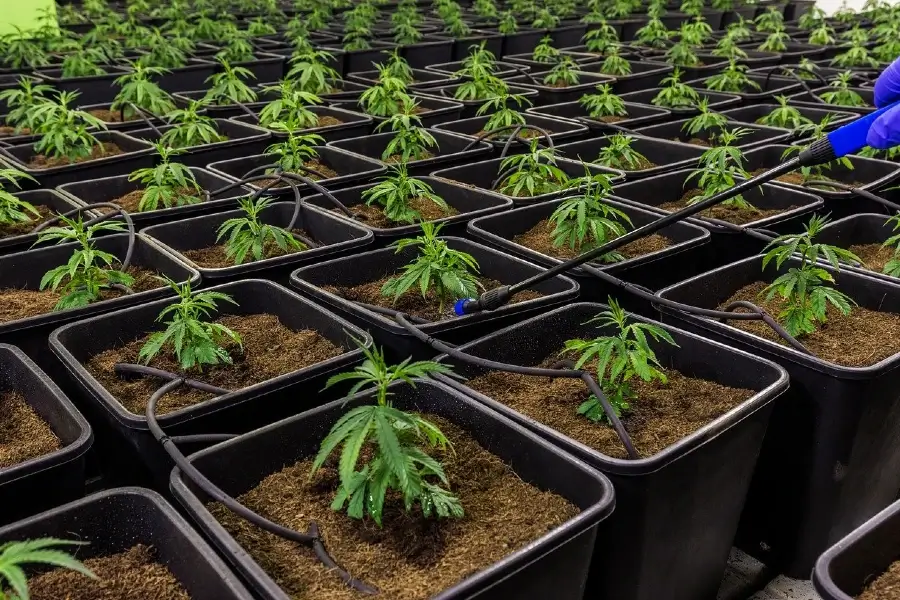Half of the individuals who utilized medical cannabis had a decrease in their consumption of opioids. Research indicates a potential correlation between the use of medical cannabis and a decrease in opioid consumption. However, the evidence is inconclusive, with specific studies presenting conflicting outcomes. Now, let’s examine this in more detail:
Research indicates a decrease: According to a 2023 investigation conducted by the New York State Department of Health, the administration of medicinal cannabis for 30 days or more was linked to a substantial decrease (ranging from 47% to 51%) in the daily dosage of opioids for individuals suffering from chronic pain.
Further rigorous analysis is required to establish a conclusive cause-and-effect correlation.
Additional research has also demonstrated potential correlations between the utilization of medical cannabis and decreased reliance on opioids for pain treatment.
Inconclusive Results and Further Investigation Required: It is crucial to acknowledge that not all studies demonstrate such a distinct correlation. Several studies indicate that medicinal cannabis may not be universally successful in treating opioid dependence, and further rigorous analysis is required to establish a conclusive cause-and-effect correlation.
Possible Causes for Decrease: Although the advantages and disadvantages of using medical cannabis are still being discussed, one specific area where it could be highly beneficial is in diminishing the consumption of opioids. Opioids are a category of medications frequently administered to alleviate pain, although they pose a substantial danger of addiction and overdose.
These conditions encompass chronic pain, neuropathic pain, stiffness, and the symptoms of nausea and vomiting that are linked to chemotherapy.
The opioid pandemic has emerged as a significant global public health concern, resulting in numerous fatalities due to opioid overdose annually.
Conversely, medical cannabis has demonstrated efficacy in providing pain relief and managing symptoms associated with many diseases. These conditions encompass chronic pain, neuropathic pain, stiffness, and the symptoms of nausea and vomiting that are linked to chemotherapy.
Medical cannabis has the potential to serve as an alternate method of pain management, potentially enabling individuals to decrease or completely stop their reliance on opiates.
There exist multiple theories on the mechanisms through which medical cannabis may accomplish this objective. One potential explanation is that cannabis and opioids exert their analgesic effects through distinct mechanisms. Opioids exert their effects on the central nervous system by inhibiting pain signals, but cannabis interacts with the body’s endocannabinoid system to regulate the feeling of pain. By integrating these two methodologies, individuals may potentially attain enhanced pain alleviation while utilizing reduced quantities of opioids.
Individuals may have a variety of adverse symptoms, including nausea, vomiting, diarrhea, and muscle soreness.
Another hypothesis posits that medical cannabis could potentially aid in the management of symptoms associated with opiate withdrawal. Upon discontinuation of opioids following a consistent time of use, individuals may have a variety of adverse symptoms, including nausea, vomiting, diarrhea, and muscle soreness.
Managing these symptoms can be challenging and may cause individuals to persist in opiate use to evade withdrawal. Nevertheless, studies have demonstrated that cannabis can effectively mitigate specific symptoms, thereby facilitating the process of transitioning away from opioid use.
Undoubtedly, medical cannabis use carries inherent risks, such as the possibility of addiction and the potential for unfavorable side effects. Nevertheless, certain patients may find that medical cannabis provides a more secure and efficient substitute for opioids.
Medical cannabis is not an effective remedy for opioid addiction and should not be utilized without seeking guidance from a healthcare professional.
As further investigation in this field progresses, it will be crucial to meticulously assess the advantages and drawbacks of utilizing medical cannabis and to establish standards based on empirical evidence for its application in pain management.
Key Factors to Take into Account:
Medical cannabis is not an effective remedy for opioid addiction and should not be utilized without seeking guidance from a healthcare professional.
Collaborating with a doctor is essential in creating an individualized treatment regimen that may involve a combination of medication, therapy, and other approaches to handle chronic pain or opioid use disorder effectively.
In general, the possibility of medical cannabis aiding in the reduction of opioid consumption is a promising field of study. Nevertheless, additional proof is required and is not a universally applicable answer. Suppose you are experiencing difficulties with opioid dependence. In that case, it is advisable to consult your doctor on potential therapy alternatives, such as medical cannabis, if it is deemed suitable in your state.




